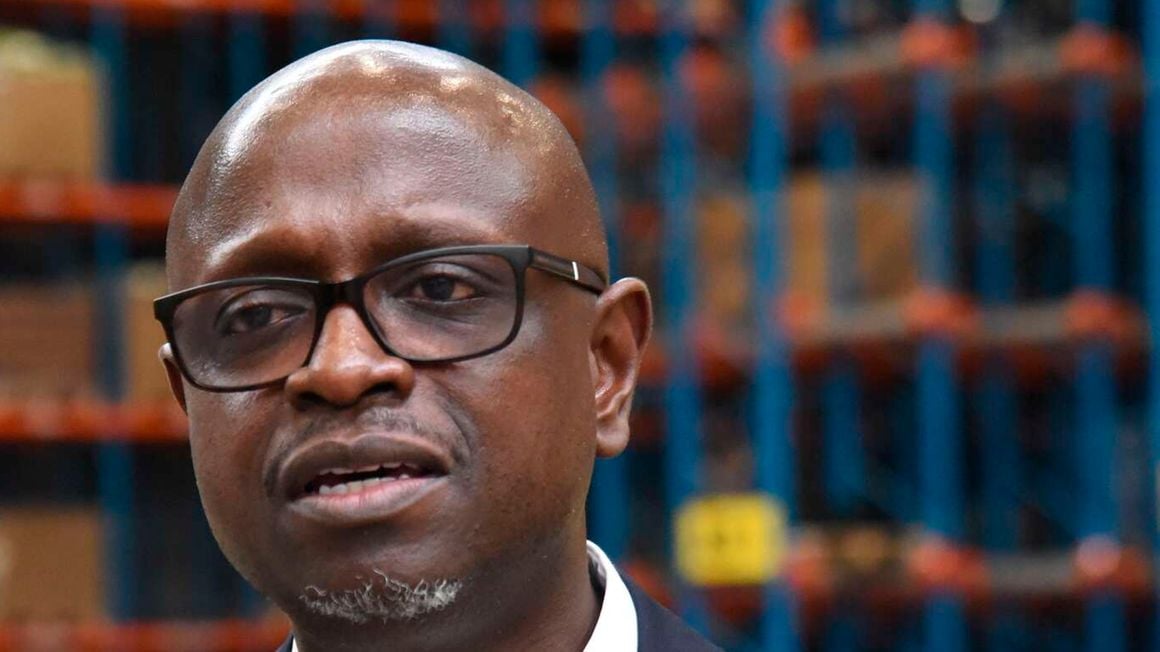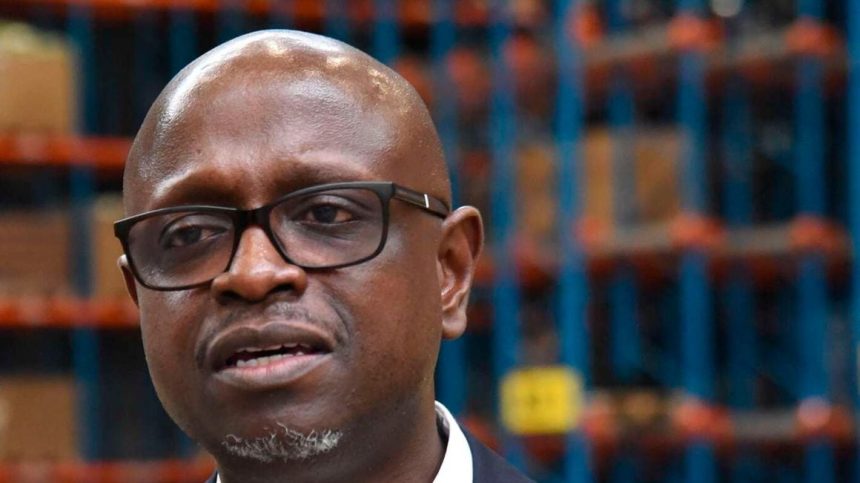Twiga Foods boss Peter Njonjo transferred 20,000 acres handed to him by President William Ruto’s administration in the Galana-Kulalu scheme to his private company, the Business Daily has established.
Official records from the company registry show that Selu Limited, the firm granted the rights to develop the irrigation scheme, is fully owned by Mr Njonjo, and not Latin American and US firms as the Twiga boss had earlier said.
The revelation is the latest major win by Mr Njonjo, whose Twiga model in March won the heart of President William Ruto who ordered the Trade and Cooperatives ministry to give it Sh300 million from the Hustler Fund for lending to its suppliers.
Irrigation Principal Secretary Gitonga Mugambi said in March that the choice of Twiga was based on the work that they had done locally.
Documents from the companies’ registry and which Mr Njonjo did not refute show that the Twiga managing director is listed as Selu’s director holding all the 500 ordinary shares while a Ms Enid Kathambi holds the post of company secretary with zero shareholding.
According to the documents, the firm was registered on December 1, 2021, and has a nominal share capital of 500,000, with each ordinary share being valued at Sh1,000.
“Yes, I’m currently the only director at Selu Limited but I’m working to onboard more shareholders and will give an update in a month’s time,” said Mr Njonjo in response to a Business Daily query.
The disclosure that the contracted company is owned by Twiga’s top executive comes at a time when the agri-tech firm is battling to restore investor and public confidence after reports emerged it has resorted to cost-cutting tactics despite raising a cumulative $160 million (Sh23.2 billion at current exchange rates) since inception.
Twiga, which employs technology to connect suppliers and consumers of agricultural products, had been allotted land at the Galana-Kulalu project by the State earlier in the year to undertake a pilot scheme on which the expansion to 20,000 acreage of maize farming would be modelled.

In June, Mr Njonjo announced that Twiga would transfer the development rights to Selu, terming it a special purpose vehicle (SPV) that was best placed to manage the project as the startup didn’t have expertise in farming.
“We are more of an e-commerce and agriculture is not our primary business that is why we have transferred our rights to Selu who have expertise in farming,” Mr Njonjo had said in June.
“We believe that Selu Limited is the best fit to manage the next stage of the project, which is to develop it further, manage and then operate it.”
While rooting for the deal, Mr Njonjo had further stated that Selu, through one of the companies under it, was overseeing over 600,000 acres of farmland in Latin America, making it the best-suited firm to run operations at Galana-Kulalu.
The Twiga CEO had also said that there was no consideration paid in the transfer of concession as Selu had been funding the initial phase in the development of the vast irrigation scheme.
Selu is currently undertaking the development of the pilot phase covering 500 acres with a production target of above nine tonnes per hectare.
It expects to start commercial operations in the fourth quarter of this year with the development of up to 20,000 acres.
In December last year, the President, while presiding over the opening of Twiga’s distribution facility at Tatu City in Kiambu County, hailed the firm’s innovation story and directed the ministries of Trade and Cooperatives to give an additional Sh300 million from the Hustler Fund kitty to Twiga for onward lending to its suppliers.
But in an interview with the Business Daily last week, Mr Njonjo confirmed that 267 of the total 810 permanent staff had already received their redundancy notices as part of the cost-cutting strategy in a process set to be finalised next month.
He, however, remained upbeat that the firm would overcome the current turbulence and get back on sound footing once the restructuring process is over.
The firm targets cutting up to 40 percent of its operational costs for business viability, aided partly by technological innovations.
Mr Njonjo heaped blame on a protracted wave of funding drought, occasioned by the raising of base lending rates in developed economies, that has seen local set-ups struggle to raise capital.
Selu, on the other hand, is developing the Galana-Kulalu project under a public-private partnership (PPP) with the government and has partnered with seed, fertiliser and other farming input providers as part of efforts to achieve optimal maize yields and boost the government’s food security campaign.
As the government embarks on constructing a dam on the Galana River to capture run-offs during the rainy season and maximise irrigation potential, the scope of the project is poised to be scaled to 100,00 acres.
If actualised, the scheme will generate an annual production equivalent to the average maize deficit in the country over the last five years and over 10 percent of Kenya’s annual production.



